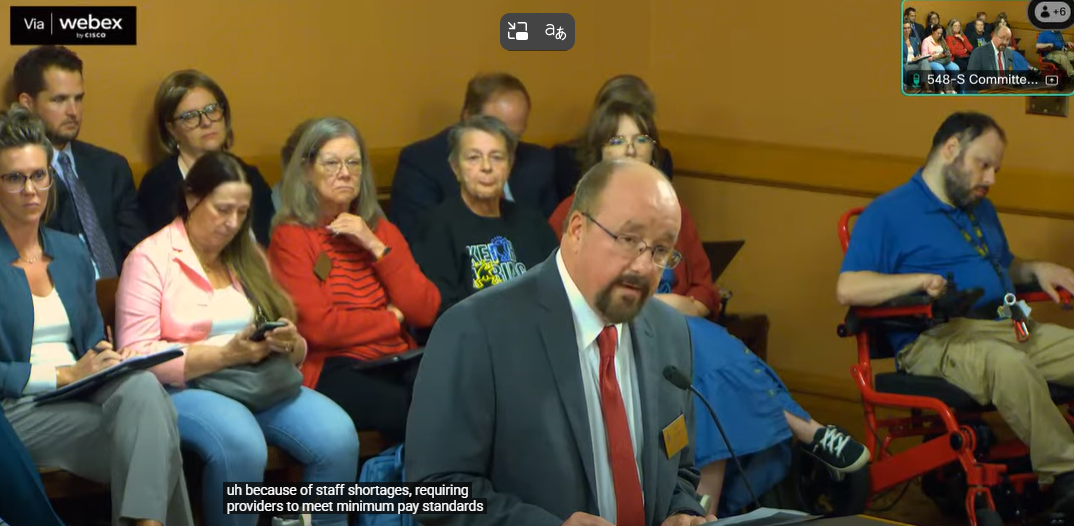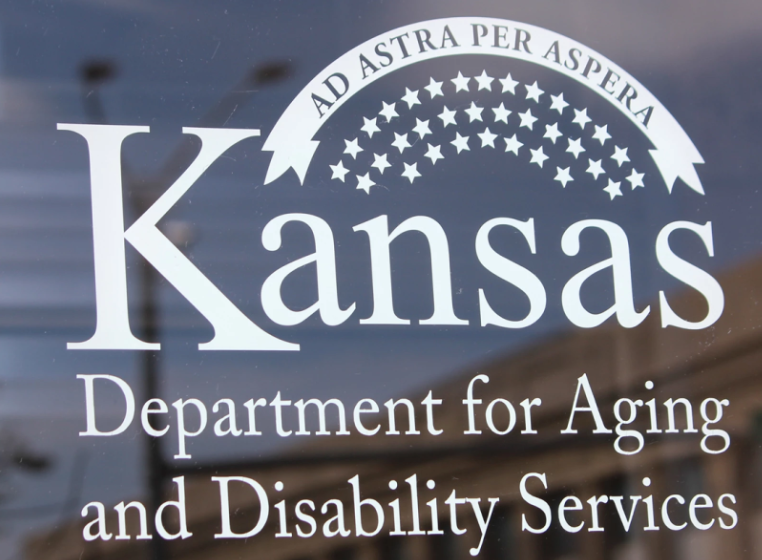By Libby Hastings
•
October 6, 2025
On October 1st and 2nd, the 2025 Special Committee on Health and Social Services met, with the first day devoted to nursing home surveying and credentialing. The joint committee of both House and Senate members heard from the Kansas Department for Aging and Disability Services (KDADS), the Long-Term Care Ombudsman, industry representatives from Kansas and out of state, administrators, and contractors. Notably absent were the voices of consumers, their family members, and facility staff , the people most affected by long-term care policy. The committee heard information about: Survey Backlogs and Staffing Challenges KDADS contracts with the federal government to inspect adult care homes for health and safety compliance. KDADS has struggled for years to meet federal requirements, due in large part to recruiting and retaining nurse surveyor positions. More than half of the 60 approved positions were vacant earlier this year. As a result, Kansas currently averages 19.9 months between nursing home inspections , far beyond the federal requirement of 12-15.9 months. With just over 300 federally licensed facilities in the state, timely inspections are critical to protecting residents. To address this, KDADS eliminated 15 vacant positions and raised starting pay: up to $60,000 for multidisciplinary surveyors and $67,000 for RNs . The agency is also considering incentives to encourage more RNs to work as surveyors. Kansas has one of the highest rates of the most serious deficiencies, known as Immediate Jeopardy (IJ) deficiencies, in the nation , citations for situations where resident health and safety are at serious risk. The committee explored the possibility of privatizing the survey process. Resident Rights at Risk Testimony also revealed troubling practices in some nursing homes, including charging residents $200–$300 per month in “pharmacy provider” or “medication set-up” fees if they choose to use an outside pharmacy. This practice undermines residents’ right to choose their own providers and unfairly penalizes private-pay residents, already shouldering an average of $7,000–$8,000 per month in nursing home costs. Involuntary Discharges and the Ombudsman’s Recommendation The Long-Term Care Ombudsman urged lawmakers to expand discharge reporting requirements. As she noted: “Federal regulations require a notice to be sent to our office for a facility-initiated transfer (involuntary discharge) in federally licensed nursing homes, but that is not the case for state licensed homes, assisted livings, home pluses and residential health care facilities. With the help of our office, we can often help resolve the reason for the discharge notice to prevent a resident transfer or support the resident to ensure a transition occurs safely.” The committee heard concerns from representatives of the nursing home industry and decided to delay making a recommendation on this issue, noting that additional information is needed. KABC has advocated for not only strengthening the reporting requirements but also giving residents of assisted living facilities the same right to appeal an involuntary discharge that nursing home residents enjoy. Raising the Personal Needs Allowance The Personal Needs Allowance (PNA) for nursing home residents is a monthly stipend that Medicaid recipients can use for personal expenses. In Kansas, the PNA is just $62 per month. Many residents express concern that this amount is insufficient to cover basic personal expenses such as haircuts or undergarments. An immediate increase to the allowance is needed, along with an ongoing adjustment to keep pace with rising costs. The Long-Term Care Ombudsman recommended a PNA increase to the national average of $72 with an additional annual Cost of Living Adjustment. KABC’s Position KABC will continue to advocate for: • Strong oversight of nursing homes. • Resident rights protections, including freedom of choice in providers. • Central inclusion of residents and staff voices in all policy discussions. You can watch the hearing on the Kansas Legislature’s YouTube channel here . KABC will continue to monitor these conversations closely as the 2026 legislative session approaches.


















